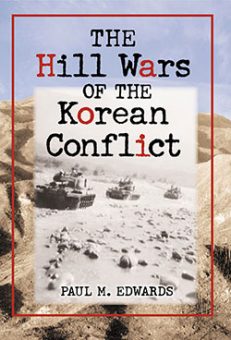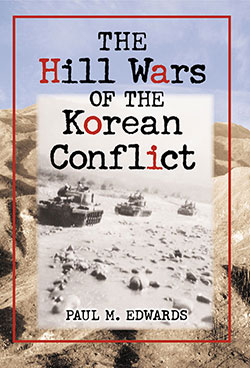Subtotal: $49.95
The Hill Wars of the Korean Conflict
A Dictionary of Hills, Outposts and Other Sites of Military Action
$49.95
In stock
About the Book
In many respects, all wars are alike. All soldiers compete for position and mobility; all forces struggle for the larger territory, the greater power. Yet each war has as well its distinguishing characteristics—its unique features, its most-remembered events, its particular frustrations that haunt the dreams of its veterans. In Korea, it was the hills.
The Korean hills offered observation, artillery, and mortar advantage to whichever country controlled them. On these hills, thousands of soldiers fought decisive battles for a few feet of land or for higher elevation.
This reference work identifies more than 400 hills, outposts, complexes and phase lines that were key components of the Korean War, allowing researchers to relate individual battles to the larger narrative of the war. Each entry details major operations fought in the area, including the units involved, the area’s strategic value in the overall war, the type of combat, and the munitions involved. Geographic features known by both numbers and names are cross-referenced for ease of access.
About the Author(s)
Bibliographic Details
Paul M. Edwards
Format: softcover (7 x 10)
Pages: 275
Bibliographic Info: 67 photos, maps, bibliography, index
Copyright Date: 2006
pISBN: 978-0-7864-2098-8
eISBN: 978-1-4766-1478-6
Imprint: McFarland
Table of Contents
Acknowledgments vi
Preface and Reader’s Guide 1
I. Hills Known Primarily by Number 15
II. Hills Known Primarily by Name 137
III. Ridges, Outposts and Complexes 174
Abbreviations and Terms 253
Bibliography 255
Index 257
Book Reviews & Awards
“useful”—ARBA.

 The Hill Wars of the Korean Conflict
The Hill Wars of the Korean Conflict 



